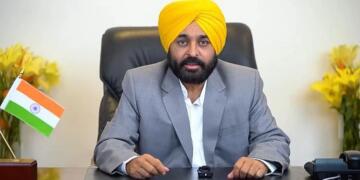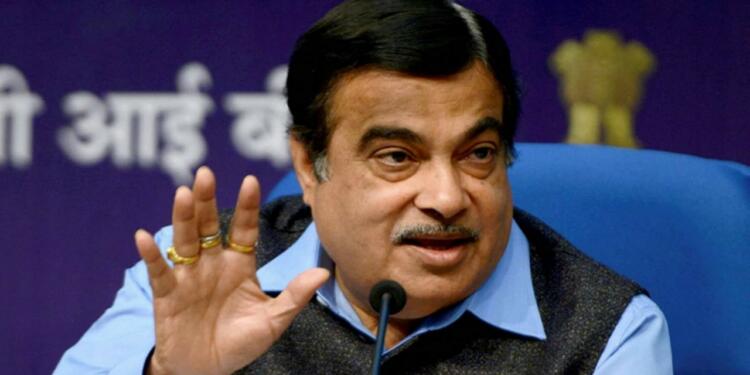What is the biggest achievement of a person’s life? What is it? Look up to many prominent identities; they are known by their work. Isn’t it? Apparently this is the biggest achievement of a person when his work becomes his identity. So now if I ask about the highway infrastructure, who is known by it? Indeed!
Union Minister Nitin Gadkari has been extensively working to develop world-level road infrastructure. But today I am going to talk less about his road infrastructure achievements and more about his latest statement, which indicates that he has some more plans to work on.
The biggest mine discovery on Indian soil in quite a few years is the Jammu and Kahsmir’ lithium discovery. Lithium has never been so important as it is today. After the oil crisis of 1970, the world witnessed both the crucial importance of oil and a need to shift focus to non-renewable sources as fossil fuels would at one point or another be exhausted. But the power of fossils was unparalleled. It took so many years, and still there is no equivalent replacement.
However, things began to change when large-scale combustion of fossil fuels caused climate change.The fuel of the future was needed, and as a result, the alternatives began to shuffle. Hydrogen and electric vehicles proved to be the most viable options, but hydrogen was the bet of the future, thereby allowing electric vehicles to take over the market.
Lithium gives hope to the Indian vehicle market
As per the game of the market, when the demand changes, the demand for raw materials follows the same path. So, in the second decade of the 21st century, lithium emerged to become one of the most significant commodities for automobiles, or better to say, for the electronic industry. After the discovery of lithium in Jammu and Kashmir, India is placed in the sixth position with 5.9 million metric tonnes. This quest was big for the country, as India is heavily dependent on Chinese imports.
The lithium triangle, consisting of the three lithium-richest countries in the world, including Bolivia, Chile, and Argentina, also have investments from China in their mines. India is also carrying out expeditions in Latin America. So, currently, we can say that lithium is the most important commodity that the countries are trying to fetch.
Gadkari’s plan to make India the top vehicle market
In context with that statement by the Union Highway and Transport Minister, Nitin Gadkari’s statement gains immense significance. In his address during an event organised by the Confederation of Indian Industry, Nitin Gadkaari stressed the need to use the lithium mines discovered in Jammu and Kashmir to produce lithium ion, which is crucial for the EV sector.
Gadkari clearly predicted that electric buses are the future and that there is a need to encourage public transport. Talking about India’s lithium requirement, Gadkari said, “Every year, we import 1,200 tonnes of lithium. Now, in Jammu and Kashmir, we have lithium. “If we can use this lithium ion, we will be the number one automobile manufacturing country in the world.”
The automobile sector has shown the potential
While India is looking to widen its automobile sector, there is a multifaceted emphasis on green fuel and electric vehicles from the government, industry, and consumers. Hence, the number of electric vehicles in India is also increasing. Reports suggest that India has beaten Japan to become the world’s third-largest vehicle market behind the US and China with 4.25 million units.
According to Mr. Gadkari, presently, India’s automobile industry is worth 7.5 lakh crore, and the sector contributes the most to the overall GST revenue collection.
J&K mining secretary Amit Sharma told Press Trust of India, “Lithium falls in the critical resource category; it was not earlier available in India, and we were dependent on its 100 percent import. The G3 (advanced) study of the GSI shows the presence of best-quality lithium in abundant quantities in the foothills of Mata Vaishno Devi shrine at Salal village (Reasi).”
There is a need for infrastructure
Emphasising the need for good infrastructure for the development of the country, Nitin Gadkari stated that with our innovative approach we can develop the backward areas, increase growth, and at the same time create employment potential. He also opined that there is a need to reduce India’s logistical cost to single digits, which is currently 16 percent of the GDP.
The share of logistics in major economies is around 9 percent, which means logistics services in India are not cost-effective and need to be made more economical. This can be done by boosting infrastructure and possibly introducing electric vehicles. But the electric vehicles used lithium batteries, and India, being a non-lithium geography, suffered setbacks. That is why this discovery is considered to have widened implications.
Decreasing cost, increasing share in the market
In an interview, Nitin Gadkri previously said that the cost of lithium ion batteries was $150 per MWh, which has been reduced to $115 per MWh. And hopefully, if the Kashmir lithium is used, the cost will come near $100 per MWh, eventually making it comparatively cheaper than the petrol vehicles.
The rise of the Indian electric vehicle industry can be understood by the fact that in FY22, nearly 7.5 lakh e-vehicles were sold in India, with an estimated rise to 8 crore till 2030. The dynamics of lithium consumption have also changed swiftly in the past decade.
In 2010, the ceramic and glass industry was the biggest lithium consumer with a 31 percent share, followed by batteries with a 23 percent share. But after a decade, in 2021, the batteries industry took a sweeping consumption lead with a 74 percent share. The ceramic and glass industry sector remained the second largest lithium-consuming sector with only a 14 percent share.
Need for lithium utilisation
What these figures say is that India’s vehicle industry is thriving. The growing service sector, which includes delivery services, travel services, and so on, has also had a positive impact. India is witnessing heavy demands, and if this lithium discovery is utilised in a proper way, it will eventually make the EVs cost effective too, thereby paving the way for clean and easily accessible travel and transport facilities. Apart from that, the reduced dependence on China is also an advantage that India can turn into its favour in geo-political discourse.
Support TFI:
Support us to strengthen the ‘Right’ ideology of cultural nationalism by purchasing the best quality garments from TFI-STORE.COM




























